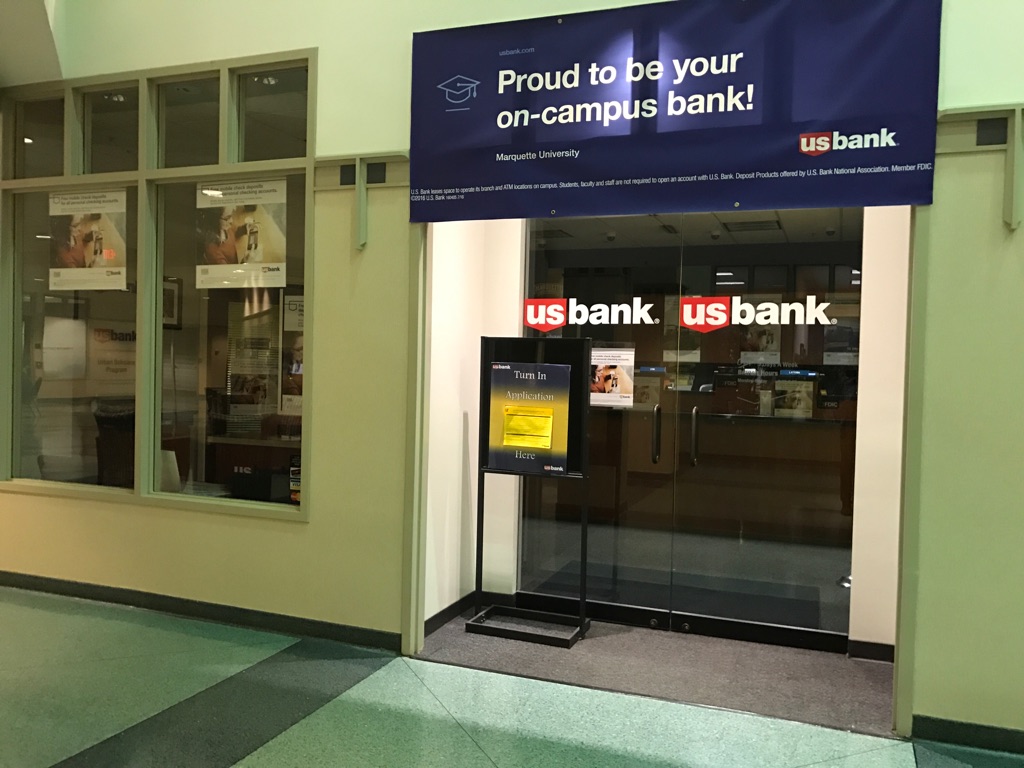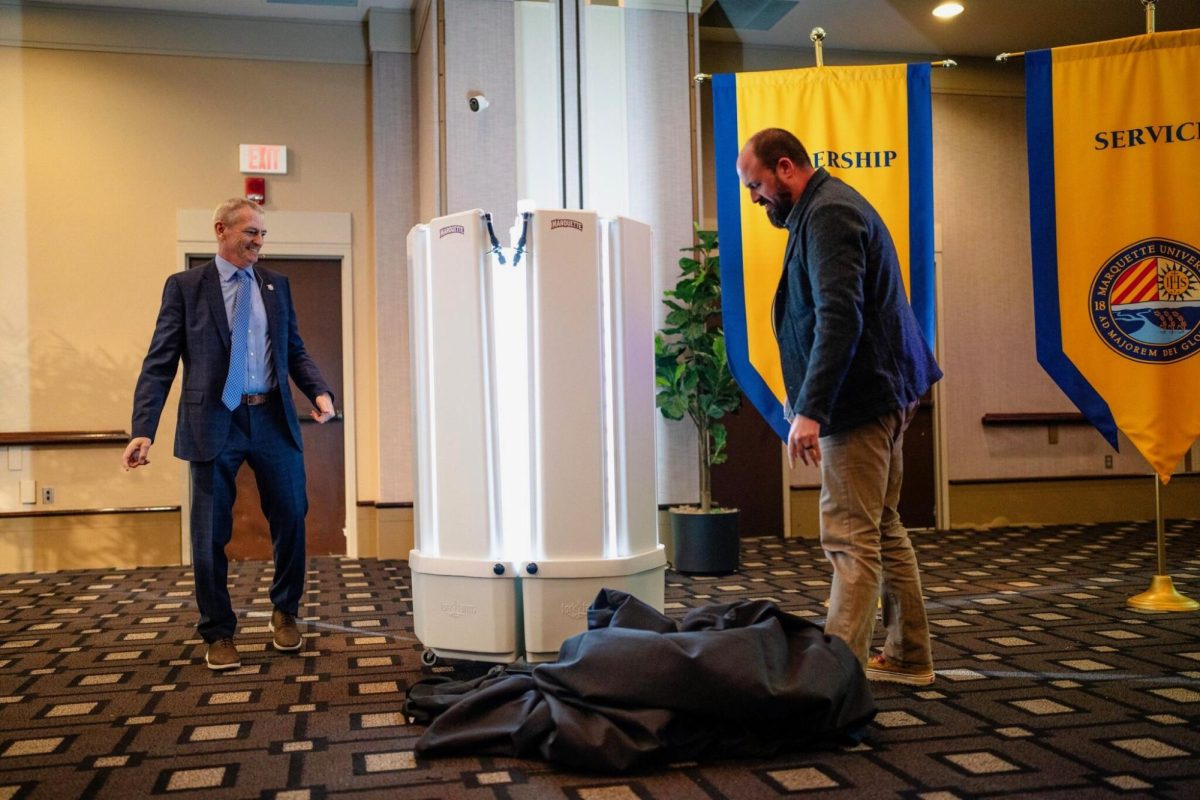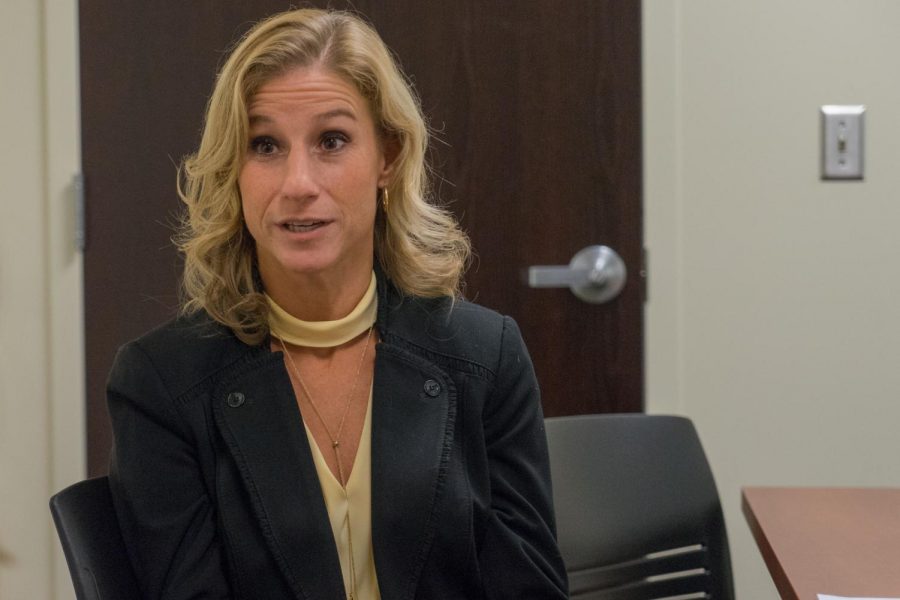The university sent out a news brief last Monday warning students of potential fraudulent activity at the US Bank branch in the Alumni Memorial Union.
US Bank branch manager Elizabeth Luckett has been at Marquette since 2013, and is familiar with scammers targeting students.
“When students come in and they say someone is asking them to wire money, those are red flags that it is potential fraud,” Luckett said. “One of the things that we like to educate the students on is that there are scams out there targeted specifically to students.”
Student-centered frauds are usually shopping scams, Luckett said. They involve students getting sent checks that banks do not accept, due to insufficient funds.
“Let’s say you purchase an item, and (the fraudster) tells you ‘Oh, we overpaid you. You keep $500 and wire us $500.’ What happens is the student wires them the $500 and then the $1,000 check bounces,” Luckett said.
University spokesman Chris Jenkins said the university is aware of students being asked to open bank accounts or give bank information to a person who claims they are looking for support in starting a business.
“Unfortunately, these requests turned out to be a scam. In today’s environment, we’d warn everyone to be wary of potential fraudulent activity and very protective of their personal financial information at all times,” Jenkins said.
Social media plays a large role in how fraudsters approach students. Luckett stressed the importance of being wary of requests for personal information.
Grace Connatser, a sophomore in the College of Communication, experienced an online scam last year. When she saw a Ray-Ban advertisement on Facebook, she went to the site and put her debit card information to purchase sunglasses.
“I was out $50 without sunglasses. Fortunately, I very quickly cancelled the card I had used so they never got a hold of my checking account,” Connatser said. “This experience really taught me to be more vigilant online and to not just believe everything you see.”
Luckett urges students to pay attention to transactions in their bank accounts and credit cards. She suggests keeping track by receiving text alerts whenever a transaction occurs.
“What it looks like is that someone will either contact them via social media or online,” Luckett said. “If someone is asking you for something and it sounds too good to be true, it is. When people ask you for your password or your account number or any information, don’t give it to them.”
The news brief from Marquette stated an outside group may be responsible for the activities, but Luckett believes that it is often individuals who scam people for a living.
Luckett recommends students speak to their bank branch if they experience unusual activity. If a student is unsure of whether something is a scam or not, he or she can use online resources such as the Free Application for Federal Student Aid website or the Federal Deposit Insurance Corporation website.









